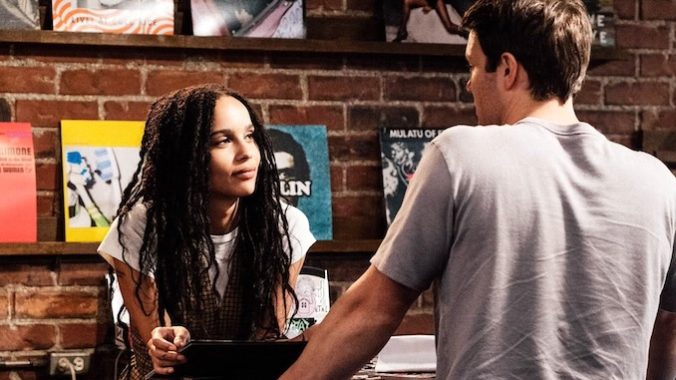Hulu’s High Fidelity Is a Universal Valentine’s Day Watch For Both Hopeless Romantics and Cynics
Photo Courtesy of Hulu
Valentine’s Day: you either love it or hate it, or maybe you’re indifferent towards it. Every February 14th, this holiday never fails to stir up some form of debate between the lovers and the skeptics. For some, it’s a day full of sweet gestures and heart-shaped decor, a celebration of love in all its forms, romantic or otherwise; for others, it’s more of an eye-roll-inducing affair, an over-commercialized Hallmark event with little substance. It seems rather obvious that, on the designated day of love, audiences would maybe lean towards an ooey-gooey romantic comedy to try and get in the mood. But unfortunately, those can sometimes feel excessively saccharine.
Enter Hulu’s High Fidelity, a television remake of both Nick Hornby’s 1995 novel and Stephen Frears’ 2000 film of the same name. In an era where almost everything nowadays is IP, reboots tread a precarious path, often relying too heavily on nostalgia to really break through the mold. However, while most others falter, High Fidelity thrives because it not only reimagines but also enhances the original source material. Adapted by Veronica West and Sarah Kucserka, the one-season series effortlessly straddles the line between traditional rom-com and heartfelt dramedy. It’s a show that simultaneously captures the giddiness of falling in love as well as the feeling of post-breakup misery while lonely in the city, making it the perfect middle ground for hopeless romantics and cynics alike.
The overarching premise of both the film and the show are pretty much the same: in the aftermath of a brutal breakup, a pretentious record store owner named Rob dwells over their “Desert Island, All-Time, Top Five Most Memorable Heartbreaks” in search for answers about why they feel doomed to always be left. In both renditions, Rob remains the same insufferably narcissistic asshole who can’t handle commitment. The biggest and most crucial difference is that whereas Movie Rob (played by John Cusack) was a straight white man, TV Rob (short for Robin and played by Zöe Kravitz) is in the body of a biracial, sexually fluid, millennial woman.
Like in the film, Rob spends an excessive amount of time reminiscing over her recent ex, Mac (Kingsley Ben-Adir). It’s been a year since the breakup, but the wound remains fresh. She texts him a meticulously curated heartbreak playlist, heavily spirals over his new fiancée (“WHAT F*CKING LILY GIRL?!”), and even goes as far as showing up at his apartment in hopes of rehashing the past. Talk about messy!
High Fidelity is, of course, so much more than a gender-swapped reboot. The series places an emphasis on fleshing out Rob’s platonic relationships alongside her romantic ones. In contrast to the film, where characters like Dick (Todd Louiso) and Barry (Jack Black) were mostly defined by Movie Rob’s tolerance towards them, the long-form storytelling structure of episodic television provides space for a more nuanced exploration into characters like Simon (David Holmes) and Cherise (Da’Vine Joy Randolph). Episode 8 (“Ballad of the Lonesome Loser”) is a welcome interlude away from Rob’s inner monologue of woe. Instead, it follows Simon recounting his own top five heartbreaks, all of which contributed to his jaded outlook on love and were administered by the same guy—a lawyer named Ben. Meanwhile, Cherise hides her insecurities about her musical aspirations with an over-the-top, no f*cks given attitude. It’s disappointing that she didn’t receive her own episode considering that, had the show not been canceled back in 2020, Season 2 would have been centered completely on Cherise, her past loves, and her family background.
-

-

-

-

-

-

-

-

-

-

-

-

-

-

-

-

-

-

-

-

-

-

-

-

-

-

-

-

-

-

-

-

-

-

-

-

-

-

-

-








































